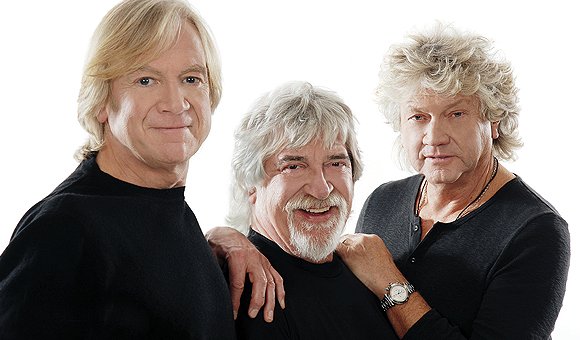http://www.thebarrieexaminer.com/ArticleDisplay.aspx?e=3306929
There are very few bands that can claim to be as popular well into their fifth decade as they were in their first.
But the Moody Blues are just such a band.
Although the band hasn't released a new studio album for a number of years, they are still able to sell out shows throughout North America, Europe and in Australia and New Zealand on the strength of their impressive catalogue of hit songs, their entertaining stage shows and still-potent musicianship.
The band is in the midst of a cross-Canada tour that sees them play Toronto's Molson Ampitheatre on Thursday, London's John Labatt Centre the following night and on Sunday, Sept. 25 at The Colosseum at Caesars Windsor.
A contemporary of The Beatles, the Rolling Stones and The Who, the band formed in 1964, and featured drummer Graeme Edge, the only original member still in the group.
After an up-and-down chart history with a string of singles, the band's lineup was revamped in late 1966 with the addition of mainstays John Lodge and Justin Hayward, who were both accomplished musicians, as well as talented songwriters.
The band soon developed its signature sound that was a hybrid of rock 'n' roll and classical music, featuring a great deal of orchestration and complex melodies, which were unheard of in most pop music of the day.
The band's landmark 1967 album, Days of Future Passed, propelled the Moody Blues into the stratosphere of pop music, based on the massive hit songs Nights in White Satin and Tuesday Afternoon.
Although the band took a three-year break from 1974 to 1977, they continued to rack up chart hits through the 1970s and well into the 1980s with songs such as Gemini Dream, The Voice, The Other Side of Life, Ride My See-Saw, I'm Just A Singer (In A Rock and Roll Band), The Story in Your Eyes and Isn't Life Strange.
The Moody Blues slowed down as a recording act in the 1990s, releasing two albums, and their last studio effort was a Christmas release, December, in 2003.
But each year, the band has toured the world for at least four or five months, bringing their music to not only its legions of longtime fans, but also a growing number of younger admirers.
"I'd say we have two major blocks of fans, which are the 1968 to 1974 bunch, and then the mid-1980s bunch, because we had a big resurgence then. So they are our two major blocks," Edge said from his hotel room in Halifax where the Moody Blues began the Canadian portion of their current tour. "But more so, just lately, we've been getting a lot of males around 22 to 24, who seem to be interested in the instrumental performances and the musicality of the band. And I think they may have started off being interested in the very simple and not very musically challenging rap, and are finding themselves at that age where they want to start stretching their legs and their interests, and we're one of the ways they seem to go.
"And you never know when someone is seeing you for the first time, too. Justin said a good line when people were asking us about the younger people coming out to the shows, and he said the thing is, they're at the age now that we were when we wrote some of these songs," he added. "So they have that angst and heartbreak and all that stuff."
Edge, 70, has actually lived in Florida for the past 24 years, and said he likes to be off the road for no more than three months at a time.
"We sort of tell the agent when we want to work, and what countries we would like to play in. Normally we do an early February/March casino tour in the U.S., and then a six-week run through June and July. Then we're in Canada for a month, and then we have a month off before we go to Australia and New Zealand," Edge said.
"You don't like to be off the road for more than three months because it's a long way back in fitness terms. So, it's best to not let it go more than three months because no matter how much work you do at home, you're just not match fit. Nothing gets you there like actually doing it."
The band decided to do an extensive Canadian tour because the Great White North has always been a big booster of the Moody Blues, Edge said.
"We have always enjoyed playing there. And I think we have the most platinum records from Canada than any other country in the world. So it's going to be fun to play some places we haven't been in a long time, or been ever in Canada," he said.
At 70, and after nearly 50 years with the Moody Blues, Edge said he still loves to play live, and play the songs that the band has been playing for longer than many in their audience have been alive.
"I just love the music and love playing it, and I love playing it to the people. I really steal my energy from the audience. From the reflected light from the stage, I can only see maybe six or seven rows back, and I just look along the front, and I sort of set my gaze on maybe five or six couples, picking the ones that are obviously enjoying themselves, and I just watch them, their reactions, and feed off their energy," he said.
"And I really love when you announce the next song, or start to play the first few notes of the next song, and you quickly glance at them and see which ones are their particular favourite. When you see the couple look at each other, it's nice, because you know there's a special connection of that couple to that song."
Edge said he has no problem playing the old hits because as a fan of music, that's what he wants to see when he goes to a rock show.
"What keeps the songs interesting and fun to play is the audience, and also some personal experiences. I went to see Elton John one time, and he had a new album out, which was a very good album, but he didn't play any of his old songs. And I walked away really disappointed. And I suddenly realized, in myself as a touring musician, it's a conceit if you just want to do your new stuff. Those people at the show are there for memories as well as for music. There's always a nostalgia element. And you owe it to them to do that, after all they've given you. The fans have given me such a wonderful life, I feel I owe it to them to play those songs," he said.
"You owe it to them to perform those old songs really well, to the best of your ability, and what helps you is when you look down, and you can tell the couples where you can see Nights in White Satin is what they got married to, or engaged to, or lost their honour to ... all of the important moments. So, you feed off them, and you play to them."
Edge said the band does change up the set list regularly, playing songs they might not have played live for years, or in some cases ever.
"The one's we haven't played for a long time, or ever at all are fun, because you get to see the crowd reaction, but it's also more challenging to play them. Of course I love playing Nights in White Satin, because every audience just loves that song. But my favourite to perform right now, well there's two: It's either The Day We Meet Again, because it's a new one to the set, and I am really enjoying working out how many more drum fills I can get in before Justin turns around and says, 'cool it a bit Gray.' And the other one is Question, because, in one song, it sort of highlights the melodic side of The Moody Blues, and the hard rock side of the Moody Blues," Edge said.
The Moody Blues' continuing popularity in North American can also be attributed, in part, to their presence on the American Public Broadcast Stations (PBS). The band was one of the first to realize the potential to tap into the baby-boomer market through showing live concerts on public television, and offering their CDs and DVDs as 'gifts' for those pledging to support the stations.
"We have a very nice deal with PBS. They give us a lot of exposure, and they get support for their programs. I like most of what I see on PBS. It's great to see some of the BBC programs on there, and, of course, Sesame Street," he said with a chuckle, but admitted that The Moody Blues did kind of pave the way for other classic rock and pop bands to use PBS as a venue to connect with their audience.
"We have accidentally paved the way many times. We 'accidentally' got involved playing live with orchestras many years ago. We 'accidentally' got involved with doing a concept album before most people did. We have a saying amongst ourselves: The Moodies seem to do the right thing for all the wrong reasons."
Edge admitted there are no immediate plans for new Moody Blues material, "but you never know what's coming around the corner."
"The great thing about this business is you never know what's coming next. And if the circumstance is right, we'd love to do a new album," Edge said.
For more information on The Moody Blues, and their Canadian tour dates, visit www.moodybluestoday.com.

